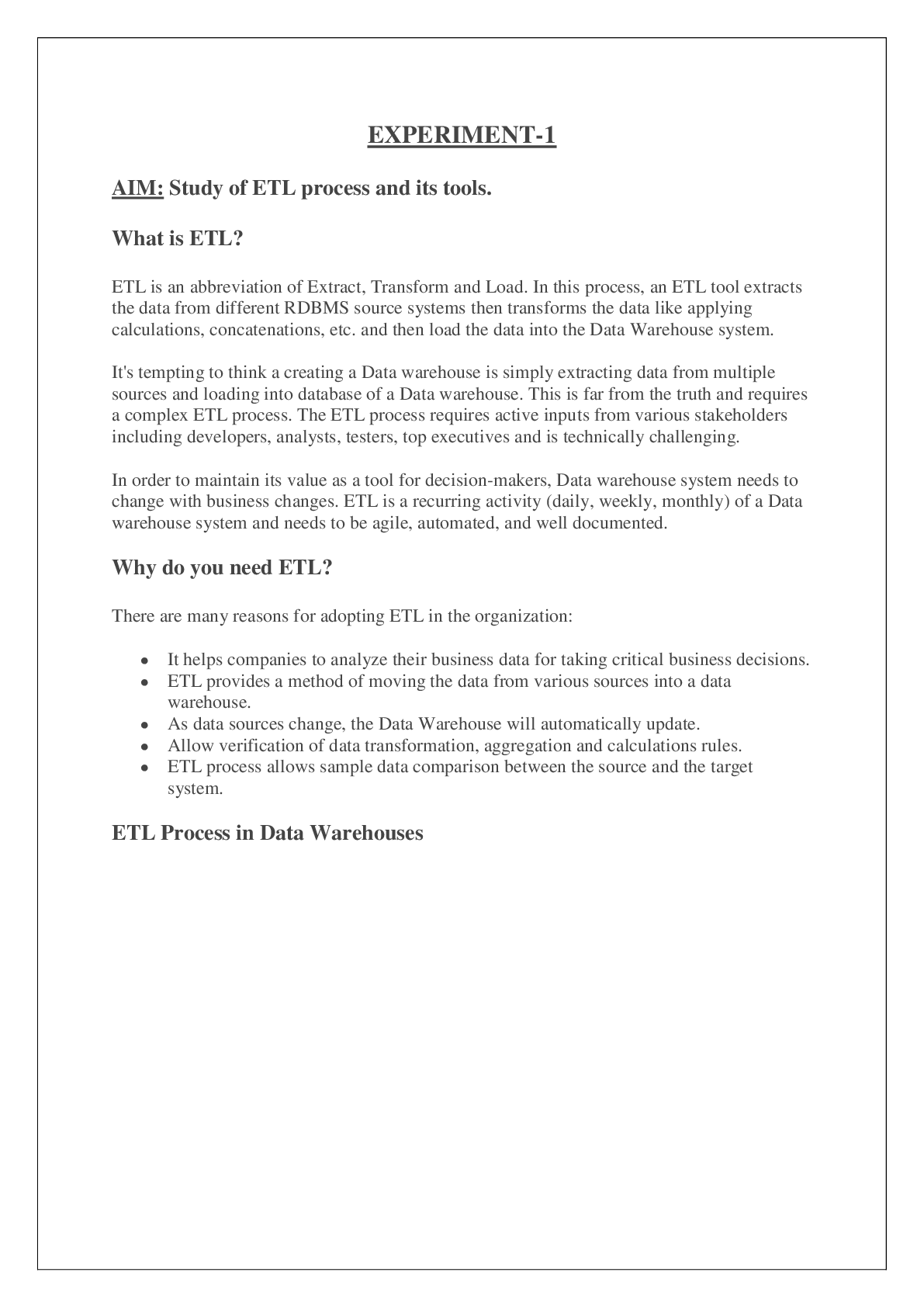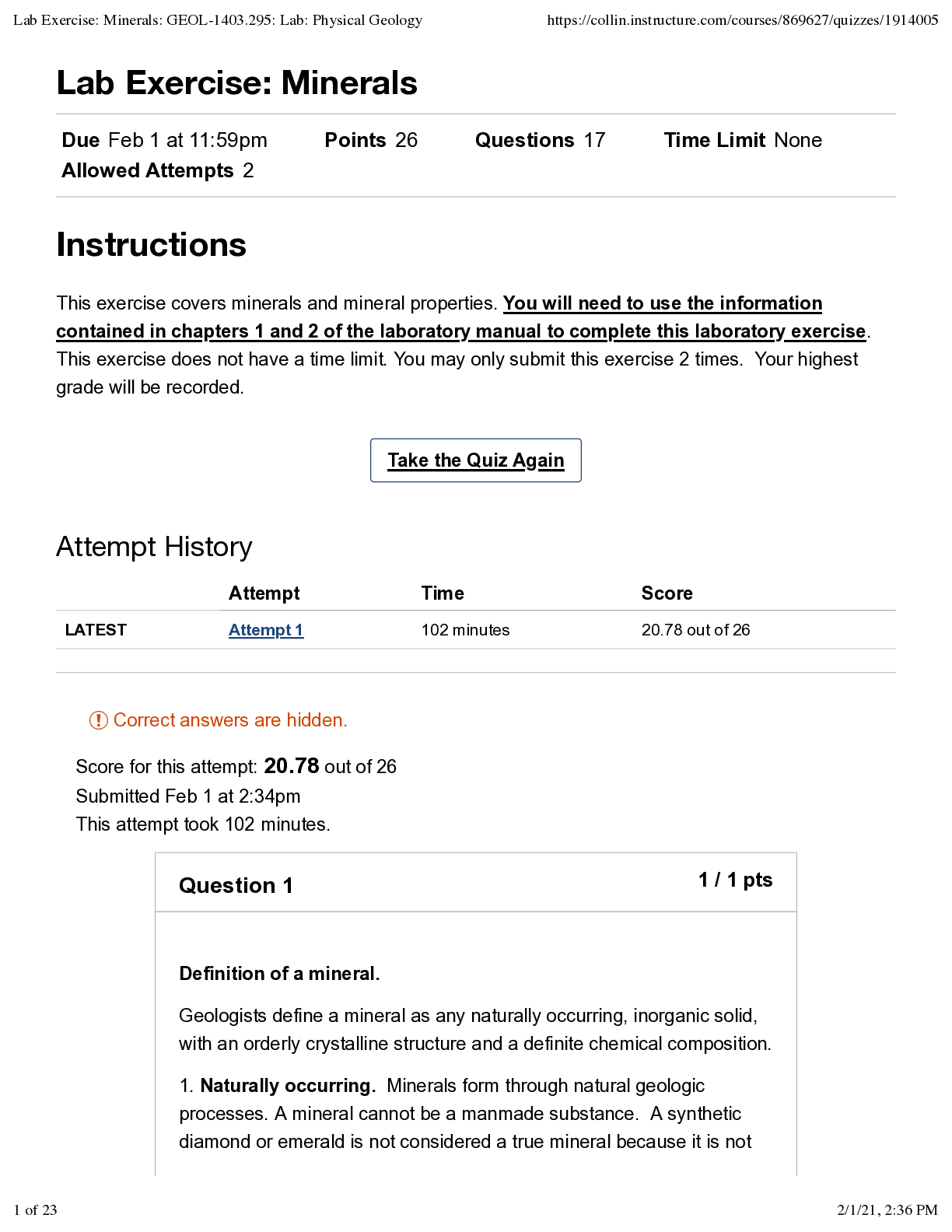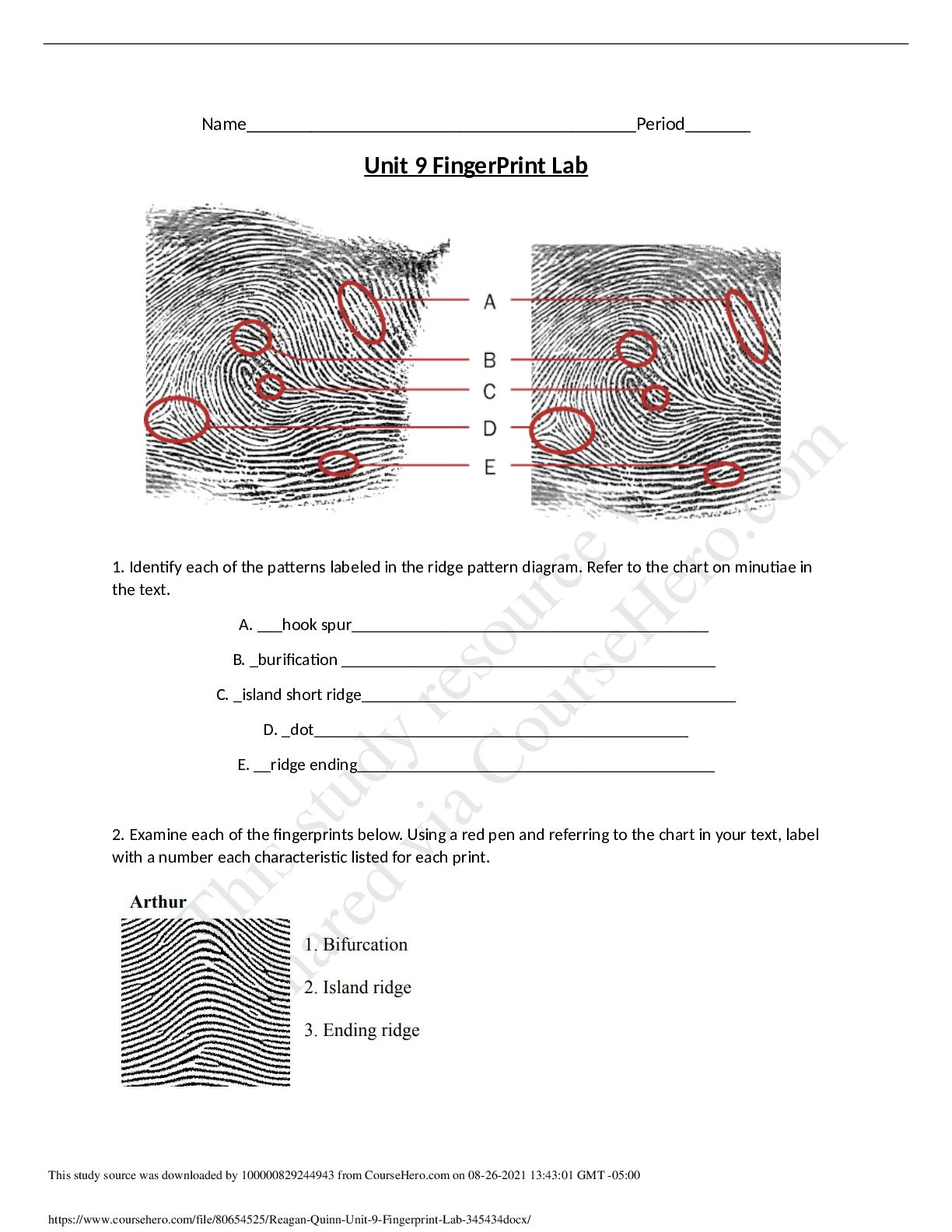Chemistry > Lab Report > University of California, IrvineCHEM 51LBexperiment 5 report scaffold different product distributio (All)
University of California, IrvineCHEM 51LBexperiment 5 report scaffold different product distributions through the use of Gas Chromatography
Document Content and Description Below
Experiment 5 Report Scaffold The purpose of the experiment is to determine and understand how different reaction conditions produce different product distributions through the use of Gas Chromatogra... phy analysis. The dehydration of 1-butanol and 2-butanol in the presence of a strong acid and the debromination of 1-bromobutane and 2-bromobutane with a strong base leads to the formation of butene isomers, trans-2-butene, cis-2-butene, and 1-butene. An elimination reaction is a type of organic reaction, where two substituents are removed from a molecule/atom in a one step, E2, or two steps, E1, reaction. An E2 reaction, which stands for bimolecular elimination, is a one-step mechanism in which carbon-hydrogen bond or carbonhalogen bonds break to form a double bond (pi bond). E2 reactions tend to require a strong base because it must be able to remove an acidic hydrogen. E2 reactions compete with SN2 reactions if the base also acts as a nucleophile. An E1 reaction, which stands for unimolecular elimination, is a two-step mechanism where a molecule is ionized and then deprotonated. E1 reactions compete with SN1 reactions because they share the same intermediate (after ionization). The base-induced dehydrobromination of a secondary and primary bromide proceeded via an E2 mechanism. Potassium t-butoxide is a strong and bulky base, which favors the E2 reaction over the SN2 reaction. Although E2 reaction usually follow Saytzeff’s rule, potassium tbutoxide is too bulky and thus can change the product of the reaction. The reaction of 1- bromobutane follows Saytzeff’s rule, whereas the reaction of 2-bromobutane results in the formation of the least substituted alkene, which is called a Hofmann elimination. Therefore, the products of the reactions are the same. (refer to figure below.) [Show More]
Last updated: 2 years ago
Preview 1 out of 5 pages

Buy this document to get the full access instantly
Instant Download Access after purchase
Buy NowInstant download
We Accept:

Reviews( 0 )
$11.00
Can't find what you want? Try our AI powered Search
Document information
Connected school, study & course
About the document
Uploaded On
Jul 16, 2021
Number of pages
5
Written in
Additional information
This document has been written for:
Uploaded
Jul 16, 2021
Downloads
0
Views
59














